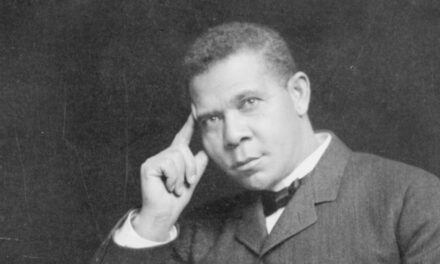LTP News Sharing:
The Supreme Court has taken a sledgehammer to the bigotry of low expectations.

Michael Austin
With a 6-3 decision, it ruled that university admission affirmative-action programs are unconstitutional and violate the 14th Amendment. Such a ruling is long overdue; there are innumerable reasons affirmative action doesn’t solve discrimination but perpetuates it.
Affirmative action, in its current form, has been around since President John F. Kennedy’s executive order 10925, which called for public and private programs to use race and gender characteristics in hiring and admission opportunities.
However, by 2014, the organization Students for Fair Admissions filed a suit claiming Harvard University discriminated against Asian Americans, violating Title VI of the Civil Rights Act. The student organization also sued the University of North Carolina, arguing the school discriminated by race, which violated the 14th Amendment’s Equal Protection Clause.
In writing the majority opinion, Chief Justice John Roberts said, “The Harvard and UNC admissions programs cannot be reconciled with the guarantees of the Equal Protection Clause. Both programs lack sufficiently focused and measurable objectives warranting the use of race, unavoidably negatively employ race, involve racial stereotyping, and lack meaningful endpoints. We have never permitted admissions programs to work that way, and we will not do so today.”
Translation? The nation’s highest court has affirmed that Americans shouldn’t face discrimination to get into college or employment based on the color of their skin.
We at Project 21, a Black leadership organization, wholeheartedly agree. We penned an amicus brief advocating for the demise of affirmative action in university admissions. Despite its noble intentions, this policy fails amid a barrage of inconvenient truths and operational problems. It nurtures the repugnant notion of underestimating minorities, insinuating they can’t excel without condescending favors. It sows the seed of a regrettable stereotype: minorities are mere decorative figures, seen but not heard at the table. Affirmative action turns minorities into mascots.
Any belief that affirmative action benefits the minorities it targets is complete hogwash. Suppose a university admission places more value on skin color over academic ability and skills. In that case, it’s setting up students for failure. As Justice Clarence Thomas explained, schools with affirmative-action programs “tantalize unprepared students with the promise of a degree and all the opportunities it offers. These overmatched students take the bait, only to find that they cannot succeed in the cauldron of competition.”
Students of all races and gender are better served by joining institutions that match their academic skills and preparation. Affirmative action programs take no such information into account.
Affirmative action is another progressive redistribution scheme where governments rob the freedom of one group to repay another. The irony is striking — the government permitted slavery, segregation and minimum wage laws, but now it claims another government program is the solution? Thinking a government program can fix issues caused by itself is like thinking a hammer can fix a broken hammer. It’s insanity.
Ending racism and discrimination requires market forces and holding racists accountable. A prime example is George Preston Marshall, former owner of the Washington Redskins. Initially opposing integration, he eventually changed his stance and signed a Black All-American running back. Why? It wasn’t because of an affirmative action policy or some mandate. Marshall lost games, and the Redskins had only three winning seasons from 1946 to 1969. All other NFL teams signed the best players they could get, making it very expensive to be a racist NFL owner. In this and many other instances, free market and competition solve the scourge of discrimination.
The message from the Supreme Court echoes with hope and inspiration. A message that racial harmony lies in recognizing individuals for their unique talents and the principles they carry. Let us embrace this moment as a unifying force that transcends all racial problems in America. Together, we can forge a brighter future where everyone’s contributions are celebrated and where we are stronger together.
Michael Austin is president of Knowledge & Decisions Economic Consulting and is a member of Project 21. He wrote this for InsideSources.com.
Author: The National Center







